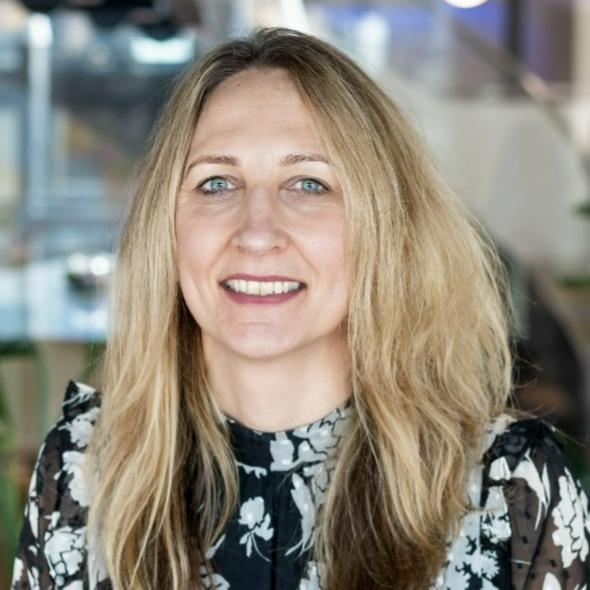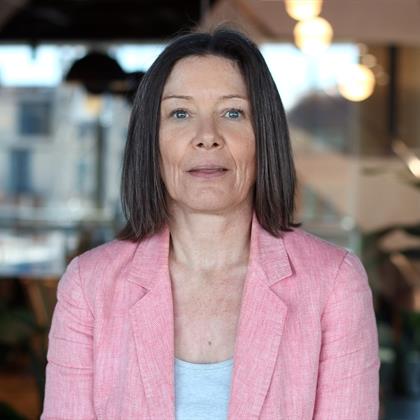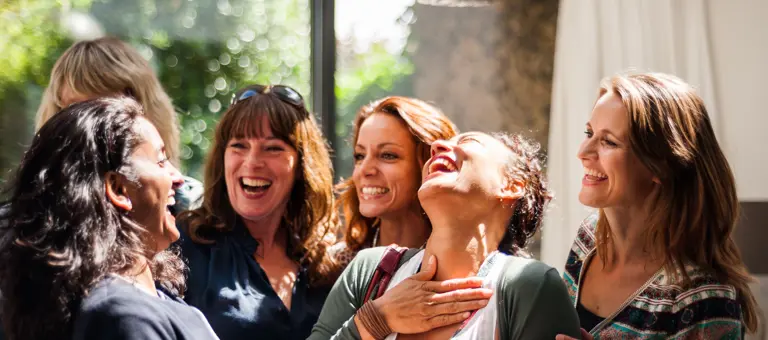It is important for everyone, both male and female, to be educated and understand what the perimenopause and menopause is, and what it can involve. Almost everyone has an important female relationship in their life or work alongside female colleagues and so often it is not just the women experiencing the menopause, but it also impacts those around her too.
There are approximately 30 million women in the UK1 who at some point will experience the menopause. Some women have an easy transition, but others will suffer the most extreme symptoms, negatively impacting their lives. It is important to remember no two menopause journeys are the same.
Most women will have their last period around the age of 50. After 12 months without a period, menopause is complete and post-menopause begins. The years leading up to that point, when women have changes in their monthly cycles, along with other symptoms, are called the menopausal transition, more commonly known as perimenopause. This transition most often begins between ages 45 and 55 and is caused by the changing hormonal levels and lowering of oestrogen and progesterone in the body.
There are many symptoms of menopause and not everyone experiences them all, of course everyone has heard of the hot flushes, and the irregular periods, but others can include brain fog, anxiety, reduced concentration, loss of libido, mood swings... all of which can be both physically and emotionally distressing. Menopause usually lasts about seven years but can be as long as fourteen years. This can depend on lifestyle factors such as smoking, age it begins, alongside race and ethnicity.
In a relatively short time menopause awareness has moved forward dramatically, not least because of the backing from high profile celebrities such as Davina McCall, Lisa Snowdon, and Mariella Frostrup, who are advocates for this subject. They have lobbied Parliament alongside female MPs to ensure women are heard and strengthened by changes in the law, but there is still work to be done. The All-Party Parliamentary Group is calling for more workplace policies to support women’s health. Along with this, they are currently lobbying for NHS-funded menopause health checks as well as hormone replacement therapy (HRT) prescriptions to be made free in England, in line with the rest of the UK. ‘Knowledge is Power’. The more we learn and understand about menopause the better we can support those experiencing this transition in life.
As it is menopause awareness month, we know this topic will be relevant to those within our blog community and as EAs at Baringa, we wanted to take this opportunity to share our personal experiences.
Natalie:
The menopause was obviously something I was aware of, usually something to make fun of, ’mad menopausal women breaking out in a sweat’. Then it hit me in my early 50’s… like a juggernaut at 100 miles an hour. Like many women I thought I just needed to brave this out, even though it was having an enormous impact on my ability to do my job.
After six months of my symptoms and feeling like I could no longer cope, I spoke to my doctor. Despite the desperate state I was in, I was given mild anti-depressants to aid sleep. It took me four doctor appointments to eventually try the private route, where finally I was prescribed combined HRT (Oestrogen + Progesterone). It took around six weeks to have an impact and I can remember the exact moment when suddenly I realised that the constant feeling of sadness and despair in the pit of my stomach had gone.
The following day I watched Davina McCall’s menopause documentary, a combination of tears and laughter ensued and finally I understood what was going on in my body and my mind. I was not that stupid, angry, useless, miserable person I had started to accept; I was just experiencing the menopause.
Taking HRT has had a massive impact on my life. The ONS reported in 2017 that women ages 50-54 are more likely than any other female age group to commit suicide. Coincidentally, the average age for a British woman to enter the menopause is 51. It still shocks me that so many women suffer in silence, however it is wonderful to see that slowly it is more acceptable to talk about the menopause.
I feel proud to now be part of a company that enables women to feel empowered to discuss the impact on them and to be supported meaningfully.
Ewa:
I started to experience menopausal symptoms in my early 40’s where I had become more forgetful, often having a word on the tip of my tongue but not being able to say it. Fatigue was another factor, being tired and then not being able to sleep was frustrating. I tried to ignore it, but it impacted my work and I requested to work from home one day a week as the commute was exhausting. Even then (circa 2015) it was frowned upon, and menopause symptoms were an ‘excuse’ rather than something that up to 75% of women experience. I eventually received the approval required having provided a letter from my GP. I did not particularly feel supported by my employer at the time. I had always been confident, but it knocked me sideways and I began to doubt myself in every aspect of life.
When I joined Baringa it was astonishing to discover the level of help and support that was offered, and this has only improved. I have used Baringa’s employee health app on several occasions which not only offers interesting articles to read, but workshops to join and even an online consultant that you are able to chat through symptoms and gain guidance from. Baringa is bold and brave enough to tackle the tricky topics and I find that refreshing.
For anyone reading this and experiencing the menopause or has someone in their life who is, whilst these are our stories and our experiences, they may differ vastly from yours, just remember that you do not need to suffer in silence and there is a vast wealth of advice, guidance, and support to hand.
https://www.nhs.uk/conditions/menopause/
1. Source: ONS (Office for National Statistics)
About the authors

Ewa is an EA in our Operational Support Team. She has been at Baringa for almost two years providing support across all Partners and their teams. She loves helping people but also enjoys spending time taking care of herself through regular circuit classes, long walks in nature and running.

Natalie is an EA supporting three Partners within our Commodities and Energy Trading team and has been with Baringa for eight months. She has spent over 20 years living across the globe which has taught her resilience, resourcefulness, and a deep passion for diverse cultures. She is a keen Yogi, nature lover and cook.
More from this series

Raising unique minds: life with neurodiverse children
Within this blog, you will hear from two of our EAs around their journeys on parenting neurodiverse children.
Read more
Bringing your faith to work
Helen Walker delves into her personal journey and how internal initiatives at Baringa have helped her on bringing her full, faith-filled, self to work.
Read more
Valentine’s Day special: Why I love being an EA
In this month's EA Things Blog we have a special Valentine's edition, where four EAs from across our business give us an insight on why they LOVE being an EA.
Read more
EA: Is it only a role for feMALES?
In this blog, you will hear from some of our male EAs about their perspectives and journeys in overcoming gender stereotypes within the EA profession that have led them to where they are now, including useful tips for thriving in the EA world.
Read more